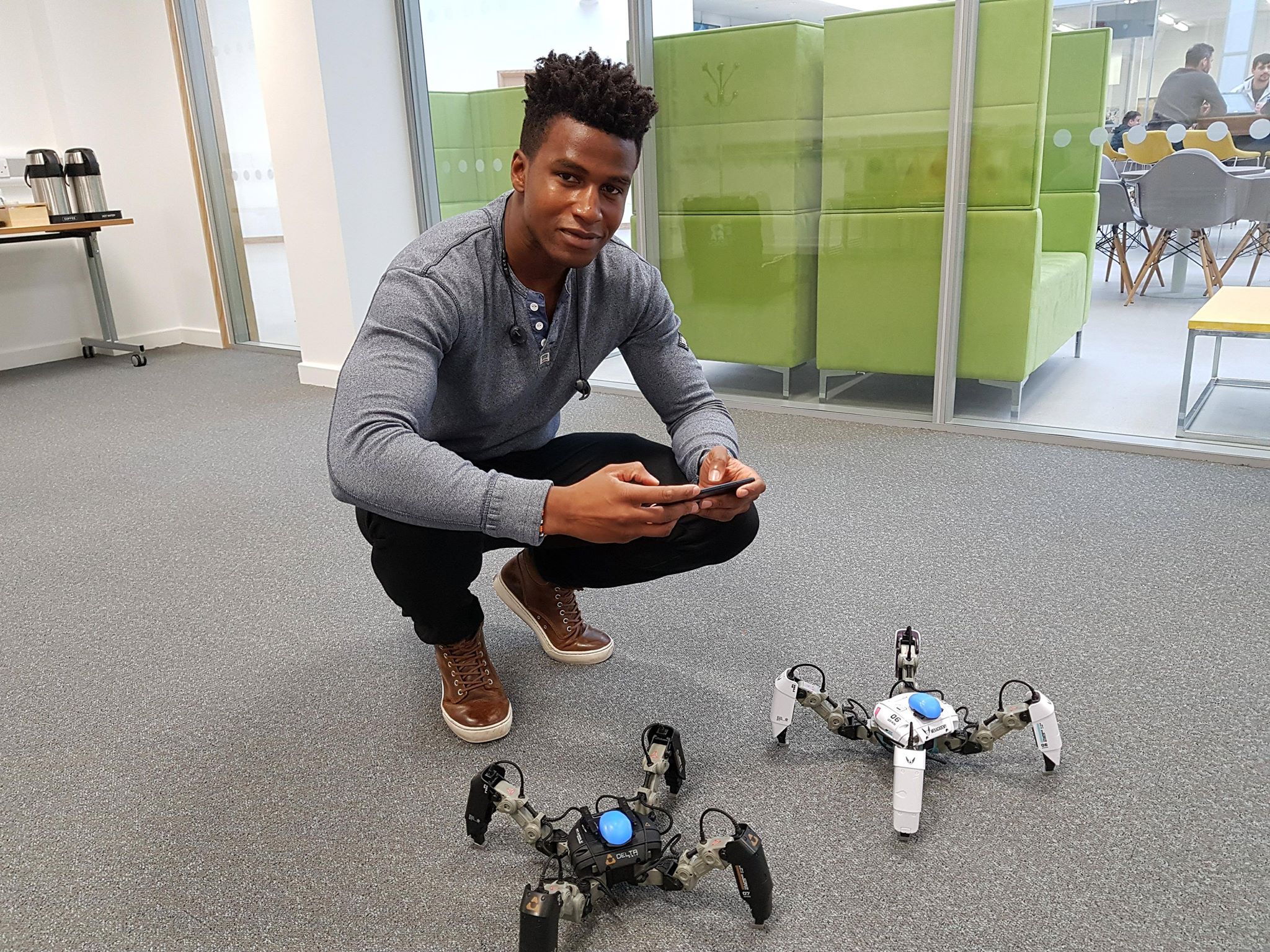- Apple Sells Gaming Robots Built by Nigerian
Apple Stores in the United States and United Kingdom have begun the sale of gaming robots, MekaMons, built by a Nigerian-British, Silas Adekunle.
Adekunle’s company, Reach Robotics struck the deal with Apple recently.
The product with a price tag of $299.95 went on sale from 16 November in the shops and online. The robots can be operated with an iPhone and other smartphones.
Reach Robotics, an augmented reality gaming company creates robots for both fun and STEM education.
Adekunle, who was born in Nigeria moved to the UK when he was 11 years old.

Silas Adekunle
He is an engineer who graduated with First Class Honours from the University of the West of England in Bristol, with a Bachelor of Science in robotics technology. He previously worked at GE Aviation and Infineon.
“We’ve created an entirely new video gaming platform,” said Adekunle in a press release, published by Black Enterprise.
“MekaMon straddles both the real and virtual worlds while taking the gaming experience beyond a player’s screen and turning their sitting room into a limitless robotic battle zone. MekaMon represents a quantum leap forward in the leveraging of augmented reality. Players can whip out their iPhone to battle their multi-functional, connected battlebots in the physical and virtual worlds at the same time.”
MekaMons are four-legged robots that players can control via a smartphone using a companion app for augemented reality gameplay.
Multiple players can have their MekaMons battle each another. Each robot weighs a little over two pounds with dimensions of 11.8 by 11.8 by 5.9 inches.
MekaMons can connect to each other via infrared signals and Bluetooth, allowing for co-op gaming.
The robots are powered by a rechargeable battery that provides up to an hour of gameplay. They are compatible with the iPhone, using the smartphone’s camera and infrared tracking capability for precise navigation.
Adekunle’s company, founded in 2013 is based at the Bristol Robotics Laboratory (BRL) Technology Incubator. His colleagues include Chris Beck who had been working as a roboticist in the BRL.
The company, according to southwestbusiness.co.uk has experienced fast growth in the past few months and the firm is moving out of its offices at Future Space in Bristol.
The company, which has taken space for its 29 members of staff at Bristol Business Park, has secured $9.5m (£7.1m) of investment funding from organisations which, says Adekunle, could “see the potential for what we were developing”.
Adekunle said: “When I was a student at UWE Bristol I spent some time going into schools to help inspire young people and it struck me that there was a huge untapped market for a consumer robot with a difference.
“We used to go in and explain simple robotics to try to inspire the young roboticists and engineers of the future and this experience set me off thinking about designing gaming robots.”
Reach Robotics is anticipating fast future growth and is looking to target the UK and US market in the lead up to Christmas.
Adekunle added: “This is an exciting time for our company as now after years of development work we are finally able to bring Mekamon to customers across the UK and US and with plans to go global.
“UWE Bristol has given us an amazing start and we are so grateful for their support.”


 Forex2 weeks ago
Forex2 weeks ago


 Naira2 weeks ago
Naira2 weeks ago
 Billionaire Watch1 week ago
Billionaire Watch1 week ago
 Company News4 weeks ago
Company News4 weeks ago




 Naira2 weeks ago
Naira2 weeks ago




 Naira1 week ago
Naira1 week ago




 Naira4 weeks ago
Naira4 weeks ago
 Nigerian Exchange Limited4 weeks ago
Nigerian Exchange Limited4 weeks ago










